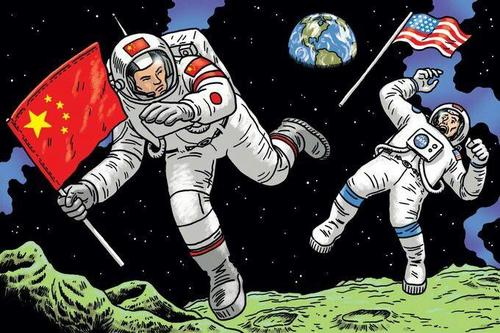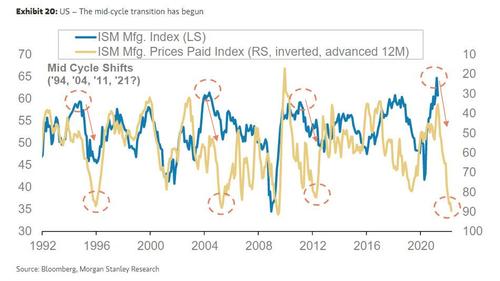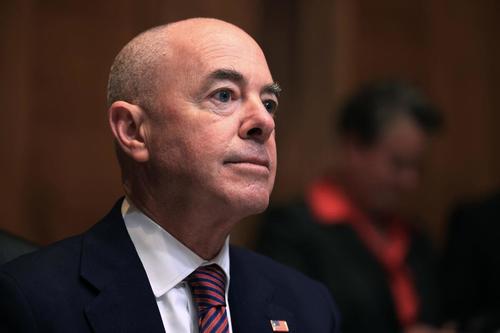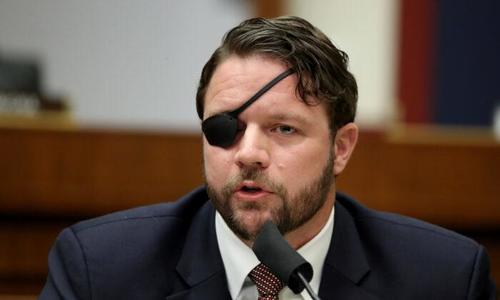Authored by Patricia Tolson via The Epoch Times,
On Monday, May 31, Americans from sea to shining sea will observe Memorial Day. However, veterans are quick to remind you: “It’s not about us.”
“Monday is not about us,” Sergeant J.O. Batten, Commander of VFW Post 8713 in Brooksville, Florida told The Epoch Times.
“It’s about the men on that wall out there. A lot of people don’t realize that.”
Batten, a United States Marine, served in Vietnam from 1968 to 1969.

“The wall” is a granite monument, which stands guard at the front door of VFW. It bears the names of a group of men known as “The Brooksville Eight,” men who were killed in action during the Vietnam War.
They are:
Capt. Denver Colburn, Lance Corporals Hercules Moore and Charles Keathly, Private First Class Danny Overton, and First Lieutenant Denis Vacenovsky of the United States Marine Corps; Sergeants Virgil Hamilton and Larry Kinder and Specialist Washington Langley of the United States Army.

“The Brooksville Eight” monument stands guard at the front door of VFW Post 8713 in Brooksville, Florida. (Patricia Tolson/The Epoch Times)
“Memorial Day is not about veterans who are still alive,” Ron McCombs told The Epoch Times, standing at attention before the wall as he looked at the names engraved into the stone.
“It’s about those men, the ones who didn’t make it.”
McCombs, now 73-years-old, was an E5 in the U.S. Army. He also served in Vietnam from 1968 to 1969.
Batten said there aren’t many veterans left from the Vietnam war at his post, and those members who served in World War II and Korea have all passed away.
“Ron and I are the only ones left here from the Vietnam era,” Batten said.
Originally known as Decoration Day, Memorial Day originated in the years following the Civil War. However, it didn’t become an official federal holiday until 1971. Still, in the 50 years that have passed, veterans have observed how the sacred meaning of Memorial Day is becoming diluted and lost.
Batten lamented how even the hallowed ritual of lowering the American flag to half-mast has been diminished by politics and political correctness. While events like school shootings are tragic, these events do not meet the guidelines for lowering the flag, as set forth by the United States Department of Veterans Affairs. According to Public Law 94-344, known as the Federal Flag Code (pdf) the American flag should be flown on Memorial Day and lowered to half-mast until noon. The code further dictates it “may be flown at half-staff to honor a newly deceased federal or state government official by order of the president or the governor, respectively.”
Billy Butts served his country as a soldier in the U.S. Army. His tours included such places as Iraq and Afghanistan. He noted a similar lessening in the meaning of medals, such as the Bronze Star. While Butts personally received one, he believes this medal is little more than a participation trophy.
“It doesn’t have the ‘V Device,’” Butts clarified, leaning forward as he held up two fingers in the shape of the letter. “That’s the difference.”
As Butts explained, a regular Bronze Star can be awarded to someone for something like administrative excellence, which is little more than “doing their job.”
However, a Bronze Star with a “V Device” is earned only for committing an act of valor during the heat of combat.
Timothy Zarbo, who served six months in the Gulf War as a member of the United States Air Force, believes this era was the peak of America’s military prowess. While the war in Vietnam dragged on for nearly 20 years, Operation Desert Storm, was over in three days. Still, Zarbo is still humbled by those who fought in Vietnam.
“We were part of the era of volunteer military service,” Zarbo asserted.
“Those who served in Vietnam didn’t have a choice. They were drafted. Those who fought in the Gulf War were called heroes, and welcomed back with yellow ribbons and parades. Those who served in Vietnam were spit on and called baby killers.”
As with the others, Zarbo made it clear that Memorial Day isn’t about him.
“Veterans Day is for those who survived and retired,” Zarbo explained.
“Armed Forces Day is for those who are still serving. Memorial Day is reserved for those who never got to take off their uniform.”
Because of this, the act of stolen valor is a particular point of contention for most veterans.
“If I could speak for all veterans, I would say: “We don’t care if you didn’t serve,” McCombs said.
“Just don’t say you did. It’s a slap in the face to all who did, especially to those that never came home. We see it all the time.”
Batten spoke of how many who served in war returned home with the crippling effect of Post Traumatic Stress Syndrome. Morgan Schmitz of the U.S. Air Force spoke of the deadly diseases that are slowly claiming the lives of many who served with him in the Gulf Wars because they were exposed to the smoke from burn pits.
Burn pits were used by the United States and military contractors in Iraq and Afghanistan to dispose of metal, rubber, chemicals, paint, medical waste, munitions and unexploded ordnance, petroleum products, human waste, plastics, and various other forms of waste. Many who were exposed to the toxic fumes from these burn pits have been diagnosed with such diseases as Leukemia, Non-Ischemic Cardiomyopathy, Intestinal Cancers, and Papillary Thyroid Carcinoma.
But even with all of the things America’s veterans suffered, the men kept returning to one important message: “Memorial day isn’t about us.”
It’s about the ones who gave the ultimate sacrifice.

Ron McCombs, Billy Butts, Robert Romance, J.O. Batten, Tim Zarbo, and Morgan Schmitz at the Brooksville Eight monument at VFW Post 8713 in Brooksville, Florida. (Patricia Tolson/The Epoch Times)
But there was one last thing Batten wanted to share with his fellow Americans to think about on Memorial Day, particularly with the younger generation, who either don’t know or don’t seem to care about the sacrifices made by the generations who went before them in order to defend the freedoms they have today. He iterated the sacred vow they all took when they were inducted into their respective branches of the military, how they raised their right hands and swore to “support and defend the Constitution of the United States against all enemies, foreign and domestic,” and to “bear true faith and allegiance to the same… so help me God.”
“Just because we left the military,” Batten said as his eyes glistened with emotion, “we were not relieved of that vow. I don’t care if we’ve been retired for five years, ten years or twenty, once we take that oath as a member of the military, we are forever obligated to defend the United States, and its Constitution from all enemies, foreign and domestic, with up to and including our lives. For us, that promise we made to you never ends.”













